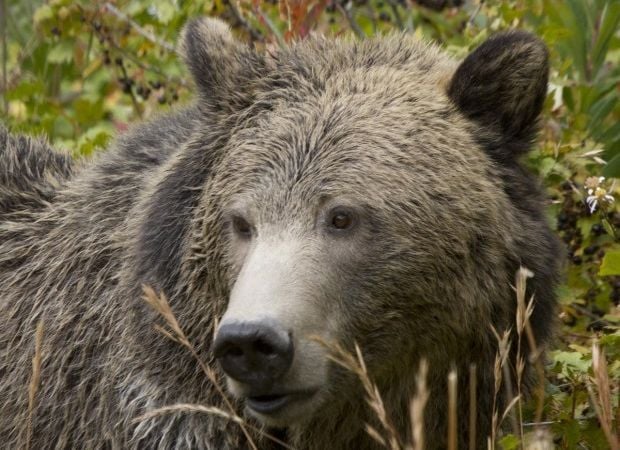JACKSON, Wyo. (AP) — It
hasn't taken long for grizzly bears and wolves to start taking a toll on
livestock this summer in the Upper Green River drainage in western
Wyoming, livestock producers say. "We probably started
going into our pasture system (with cattle) about the 20th of June,"
said Albert Sommers, a rancher who heads the Green River Valley
Cattlemen's Association and is representative for Wyoming's House
District 20.
A neighbor who grazes cattle along the Green
River bottom had a "bear kill and a wolf kill before we even got
there," Sommers said. "And I think between then and now —
this is a guess — there's been about six to eight bear kills and two
wolf kills on us," he told the Jackson Hole News & Guide.
The
323-square-mile public lands rangeland complex in the Upper Green,
located about 40 miles east of Jackson, is the largest grazing allotment
in the U.S. Forest Service system. In places it spans the entire
Bridger-Teton National Forest from north to south.
The
region is also the most concentrated portion of the Greater Yellowstone
Ecosystem for grizzly bear conflict. The allotments are the site of
about 40 bear-livestock conflicts a year, according to Forest Service
documents.
When they kill livestock, bears are typically
relocated from the Upper Green or, if they've got a bad record,
sometimes removed from the population.
Ten grizzly bears have been killed by wildlife managers since 2012 for depredations in the rangeland.
A
limit set by the U.S. Fish and Wildlife Service allows for no more than
11 grizzly bears to be killed over any three-year period. Last year the
limit was reset by Fish and Wildlife, which is managing grizzly bears
while they're being protected by the Endangered Species Act.
The
latest grizzly mortality in the Upper Green occurred June 26, when an
adult male with a history of cattle depredation was killed, according to
Dan Thompson, the Wyoming Game and Fish Department's large carnivore
supervisor.
Game and Fish relocated a young grizzly from
the Upper Green the next day, according to the state agency. The bear
was relocated to an area about 5 miles east of Yellowstone National Park
in the North Fork of the Shoshone River drainage.
The removal and relocation didn't bring depredations on the rangeland to a halt. "There's been kills since then," Sommers said. "They've
got another bear that they collared a year ago and they found his radio
signal in close proximity to a kill, so they're pretty sure he's
killing," he said.
Another suspected wolf-kill was detected recently on Pinon Ridge, Sommers said. Calves
have accounted for the majority of the livestock depredations tallied
by the Green River Valley Cattlemen's Association this year, Sommers
said. One or two yearling cattle have also been killed, he said.
Bridger-Teton
National Forest permits allow more than 7,000 sheep and 15,000 cattle
to graze public land in the Upper Green. An environmental planning
document from the Forest Service that could allow grazing in the area to
continue for years to come may soon be released to the public.
___
Information from: Jackson Hole (Wyo.) News And Guide, http://www.jhnewsandguide.com



No comments:
Post a Comment